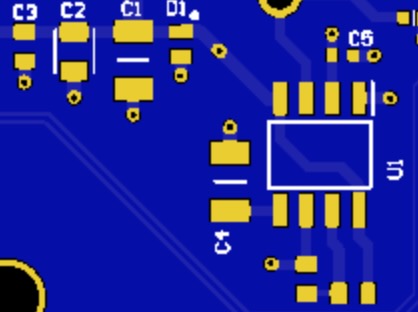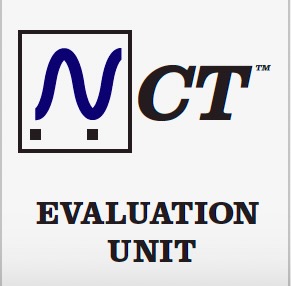Exact Measurement? For Innovation, and Progress
A coherence-based Noise Reduction System, approaches a time-independent reference, or exact standard, for the measurement of time. Download summary of scientific research here.
Sustainable Technology Starts With
Reducing Measurement Uncertainty

Areas of Application of Coherence Technology Pdf download here: https://www.upgradingtechnology.com/support-files/areasofapplication.pdf
The importance of sustainable technology innovation cannot be underestimated
Regarding Sustainable technology innovation: Research from Harvard Business Review and McKinsey Company highlights the critical role of sustainable technology innovations for companies.
According to Harvard Business Review (HBR), sustainable innovation is a critical factor for the long-term success of organizations. In a research article “The Case for Sustainability,” HBR found that companies that prioritize sustainable innovation experience higher profitability over time and improved reputation among consumers, employees, and investors. They cited examples of companies that have significantly transformed their business models by focusing on sustainable innovation, hence profiting both economically and environmentally.
McKinsey & Company also have extensive research that corroborates this. In their study “The Innovation Imperative for Growth and Profitability," they found that 84% of executives surveyed believe innovation is crucial for their business strategy. The report also discovered that companies that consistently focus on innovation, including sustainable technology innovation, outperform their peers in the market, experiencing greater profit margins and more significant market share gains. They posit that sustainable technology innovation is not just about 'going green'; it is an avenue for enhancing business efficiency and profitability.
Both Harvard Business Review and McKinsey Company suggest sustainable technology innovations are essential for companies, not just from an environmental perspective, but also for practical business success. By incorporating sustainable technology innovations, companies can drive greater profits and establish a competitive edge in the market.
Empowering Innovators Through More Precise Measurement for Sustainable Technology
Sustainable technological innovations are reshaping the world as we know it. At the heart of these remarkable transformations lies the critical factor of accurate measurement. As precision drives progress, and accuracy fuels efficiency, we invite you to delve into our innovative coherence-based Noise Reduction System. This unique technology establishes a firm, time-independent reference, or exact standard, for measuring time, directly reducing measurement uncertainties. Detailed scientific research explaining this groundbreaking system can be found here.
Harnessing Sustainable Success Through Reduced Measurement Uncertainty
The technological landscape is always evolving, with the promise of the future lying in precisely measured, efficient, and sustainable systems. However, one key challenge is the pitfall of measurement uncertainty. This looming uncertainty risks the creation of errors in data interpretation, potentially causing faults in machinery, disturbances in communication networks, and inefficiencies in energy utilization.
The margin for error may seem minuscule, but the ramifications can be significant. In the world of automated manufacturing, even the slightest deviation from the precise standard can trigger vast production errors. This not only increases material waste but also impacts the productivity and cost-effectiveness of the operation.
Countering this, reducing measurement uncertainty paves the path to enhanced system efficiency. As errors are minimized, the lifespan of machinery extends, communication networks gain stability, and energy utilisation becomes optimized. Each of these factors ensures the overall sustainability of the system, leading to longer-term benefits.
Driving towards this ultimate goal of sustainable technological development calls for concerted efforts to decrease measurement uncertainty. It's not a mere aspiration but a necessity to maintain long-term system effectiveness, efficiency, and security. So, join us on this journey of innovation and sustainability. Because every measurement matters as we strive to engineer a sustainable future.
The future depends upon sustainable technological innovation through the reduction of measurement uncertainty
Indeed, the future of technology lies in precision and accuracy. As the world moves towards more advanced technological systems, it is important to have the precise measurements to ensure the effectiveness and stability of these systems.Measurement uncertainty can be a major hurdle in achieving sustainability in technological advancements. It has the potential to create errors in readings which then can lead to various issues such as faults in machines, disturbances in communications networks, and energy inefficiency.
An inaccurate measurement can lead to incorrect conclusions, which could potentially have a considerable impact on the overall functionality of a system. For example, in automated manufacturing, even a minimal deviation from the standard can cause massive production errors that can lead to substantial material waste.
Reducing uncertainty in measurements is critical for maintaining the efficiency of systems. It reduces errors, thereby extending the lifespan of machines, enhancing the stability of communications networks, and improving energy utilization, all of which contribute to overall system sustainability.
In conclusion, precise measurements are the key to reach the ultimate goal of sustainable technological development. We must strive to lower measurement uncertainty, ensuring our systems remain effective, efficient and secure for a long term use.
New tools for innovators:
Innovate the easy way...discover the benefits of the Coherence Hasslefree Innovation Program™ (CHIP) for sustainable technological innovation.
